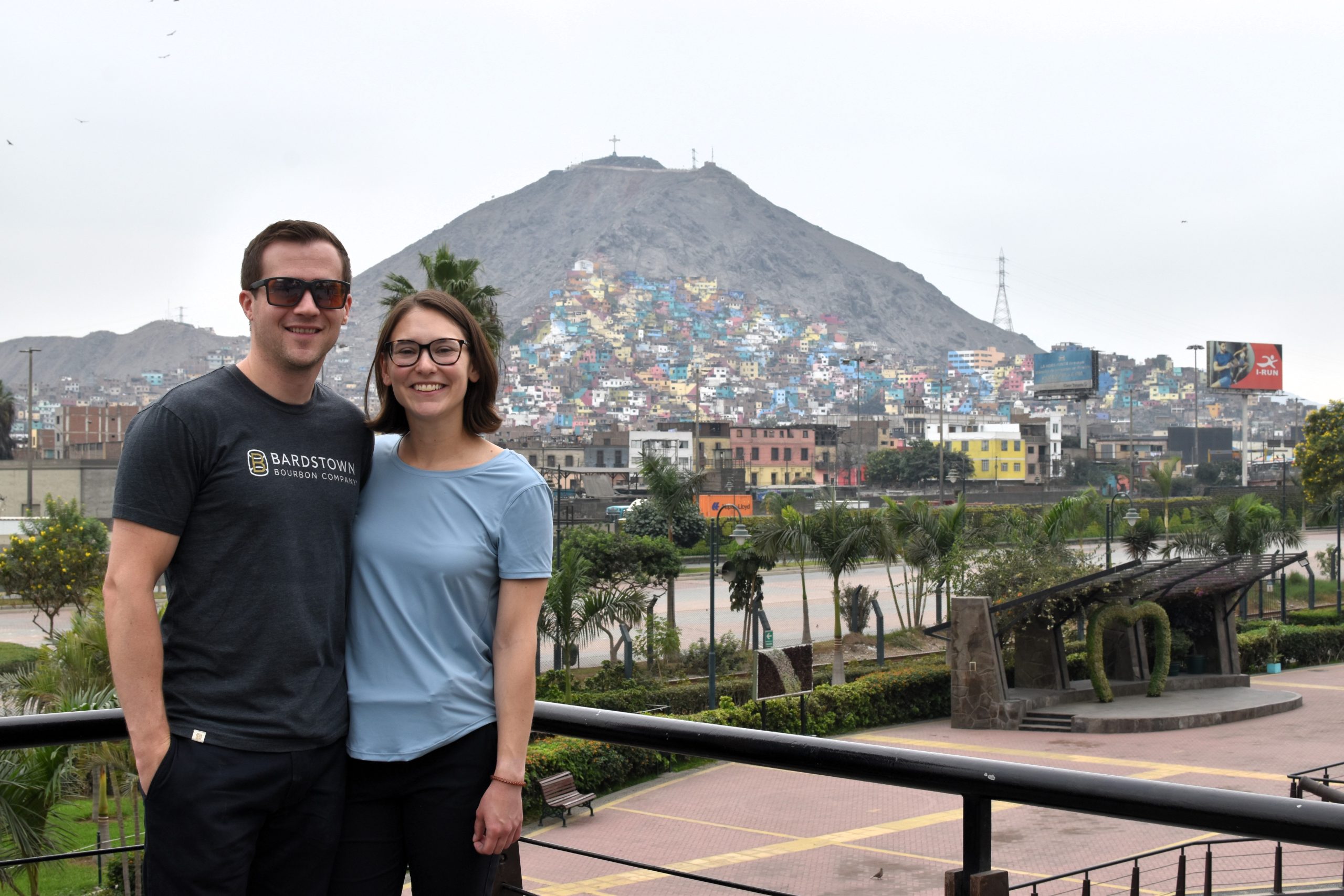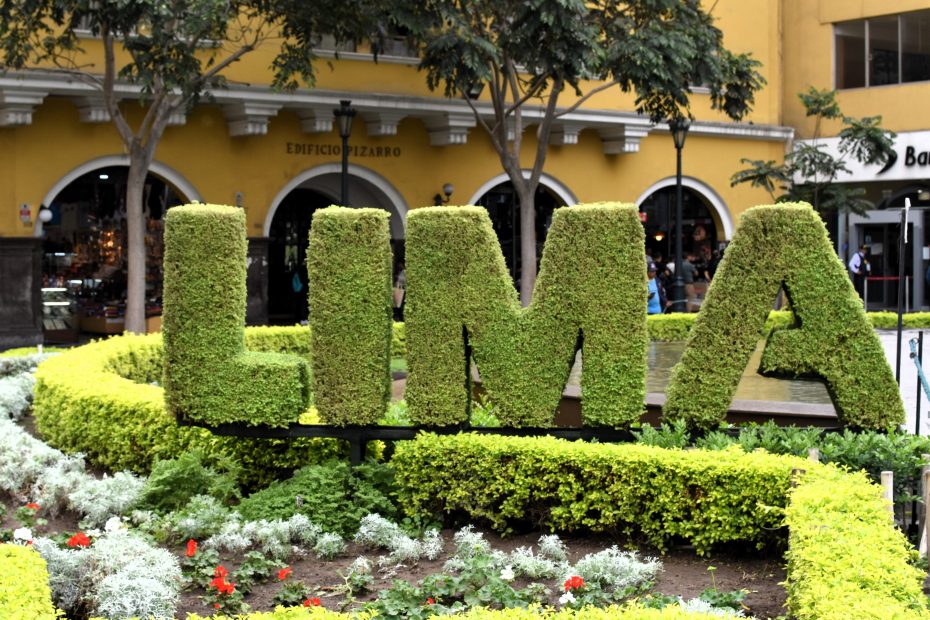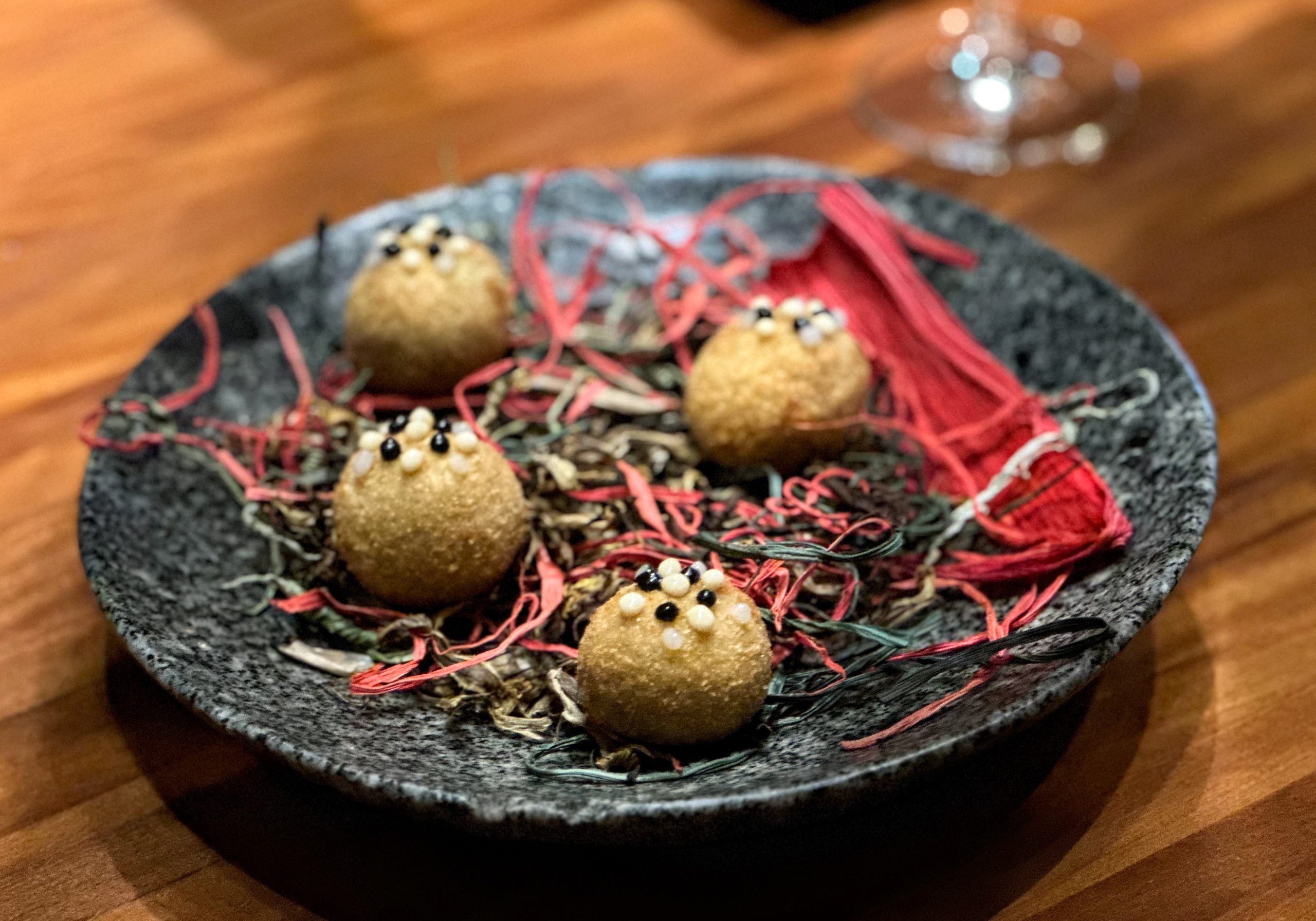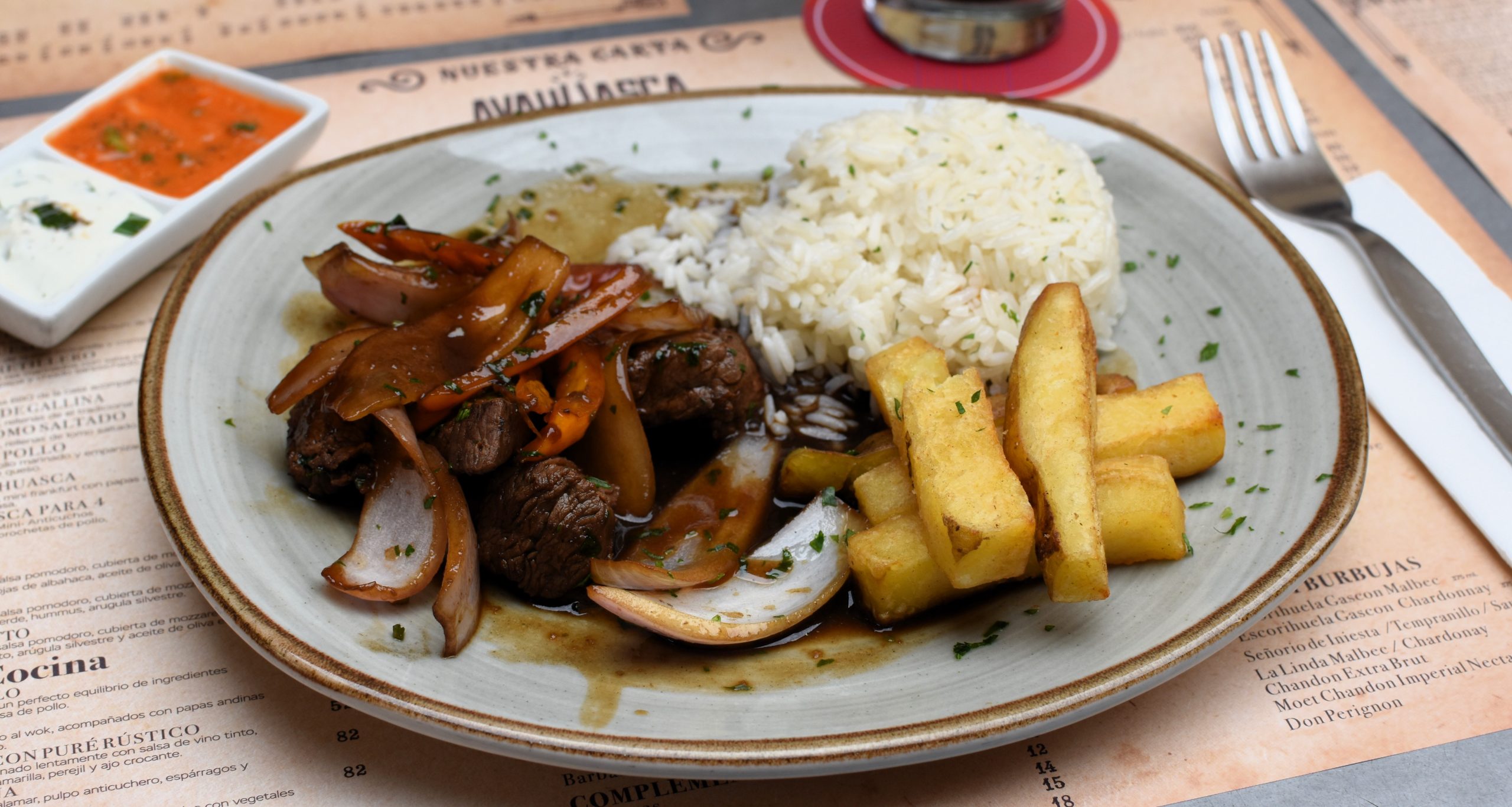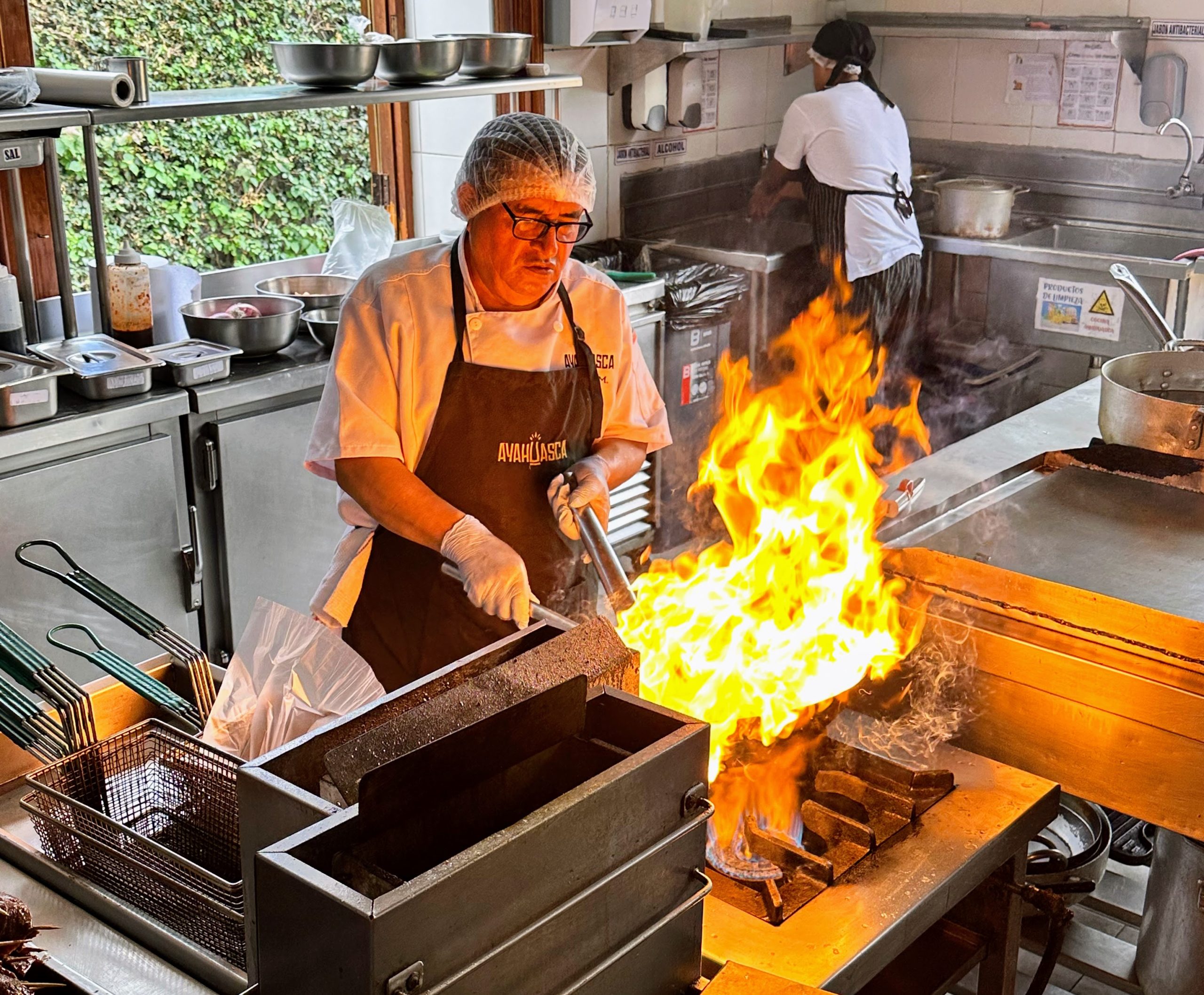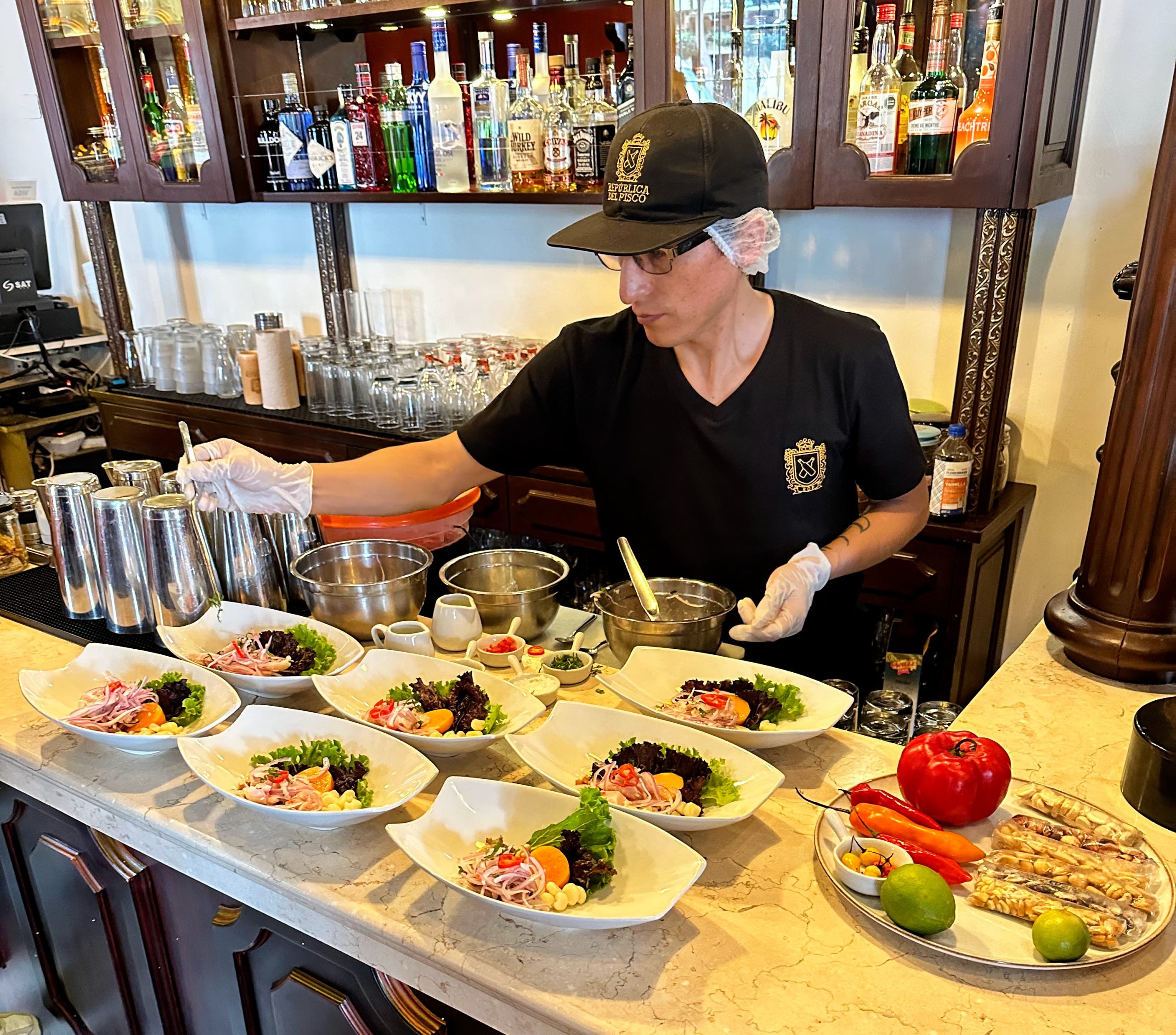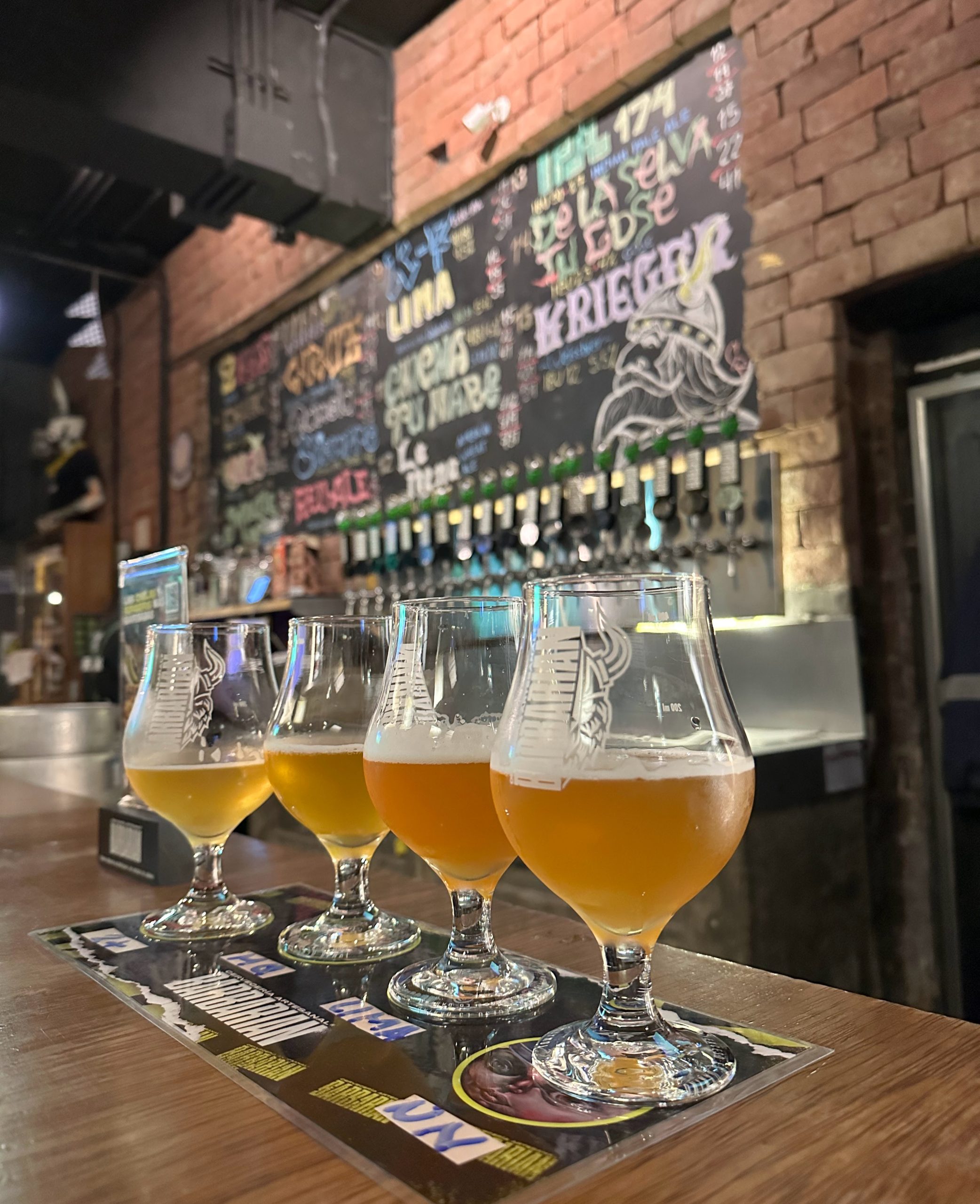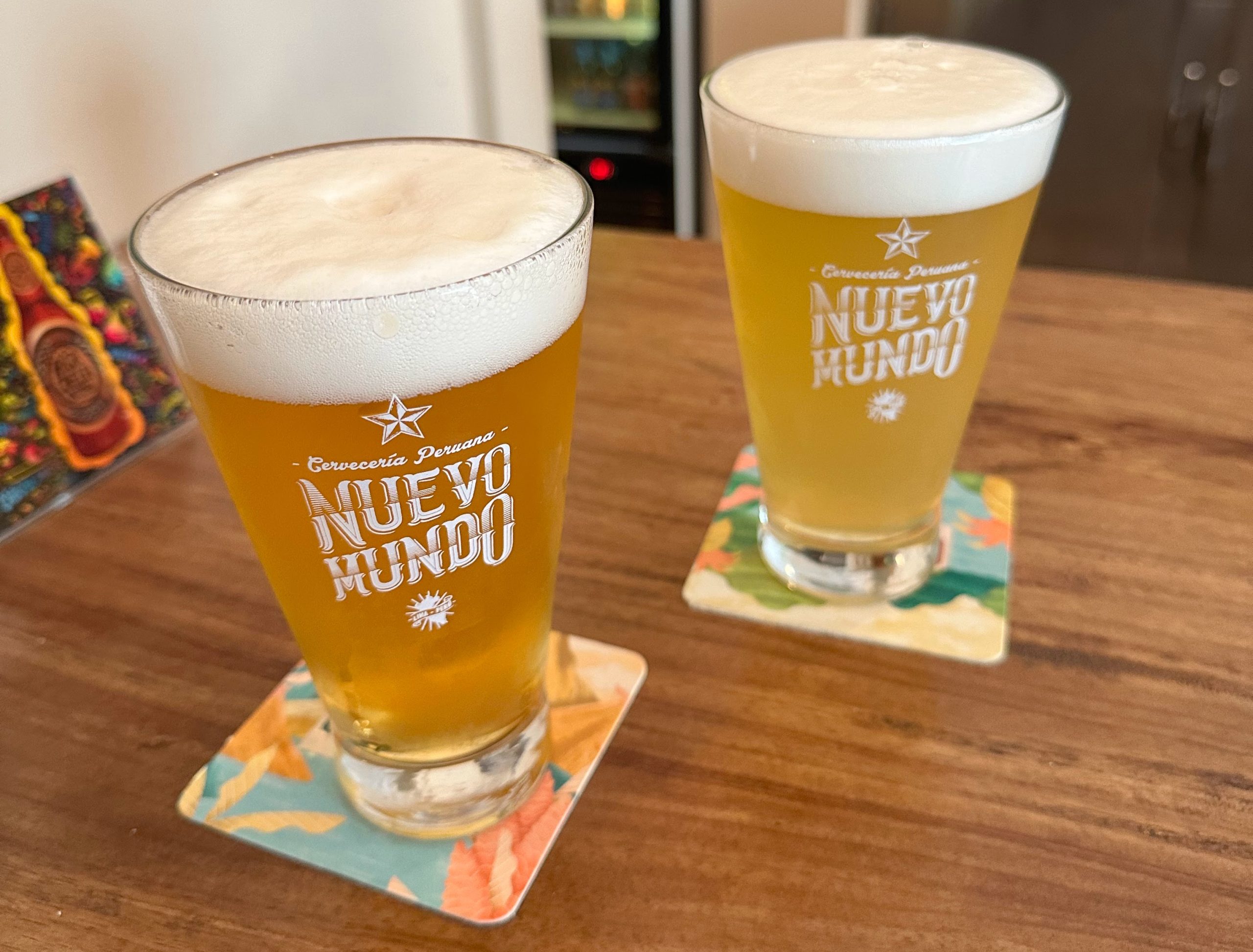While not the main reason most people visit Peru (hello, Machu Picchu), Lima is well worth a quick stop as your likely port of entry to the country. The huge city has some beautiful areas, world renowned food, and plenty of activities to keep you busy for a couple days.
Where to Eat
Did we mention that Lima is a foodie’s paradise? Seriously, if you look at any list of the best restaurants in the world, you will find some Lima establishments towards the top of the list (including Central at #1 as of July 2023). The Asian influence in the country has led to some amazing flavors and dishes that we highly recommend you indulge. Below are our favorite restaurants from our visit.
- Maido: All the way down at #6 on the World’s 50 Best Restaurants list (they can’t all be Central), you will find Maido. This fine dining restaurant delivered one of the best meals we’ve ever had. It is not cheap, but with a reservation you can be treated to an amazing 11 course tasting menu. Some highlights of the meal included insanely fresh fish that was sliced and seared at the table, scallops with a beef reduction, toro nigiri, and (surprisingly) a tofu snack that was part of the first course. The service and ambiance were also great. Overall, it was just a very special experience that we would absolutely recommend.

- Alanya Reposteria: This unassuming café has incredible empanadas. We stopped by primarily for coffee to start the day, but the empanadas stole the show and made us wish we had ordered more for a full meal.
- Ayahuasca: If you would like to try some more typical and traditional Peruvian food, Ayahuasca is a great place to do so. The lomo saltado (beef sirloin) and anticucho (beef heart typically on a skewer) were both excellent, and the restaurant has a great vibe too. Although we were there for lunch, we could see it being a cool place to spend an evening.

- Republica del Pisco: The ceviche here is good (a little spicy), but we would mainly come back for the drinks. Honestly, here we had one of the best non-alcoholic drinks we’ve ever had…we just can’t remember what it was called. It was some kind of ponche with fruit and herbs. We would drink through the whole menu to find it again.
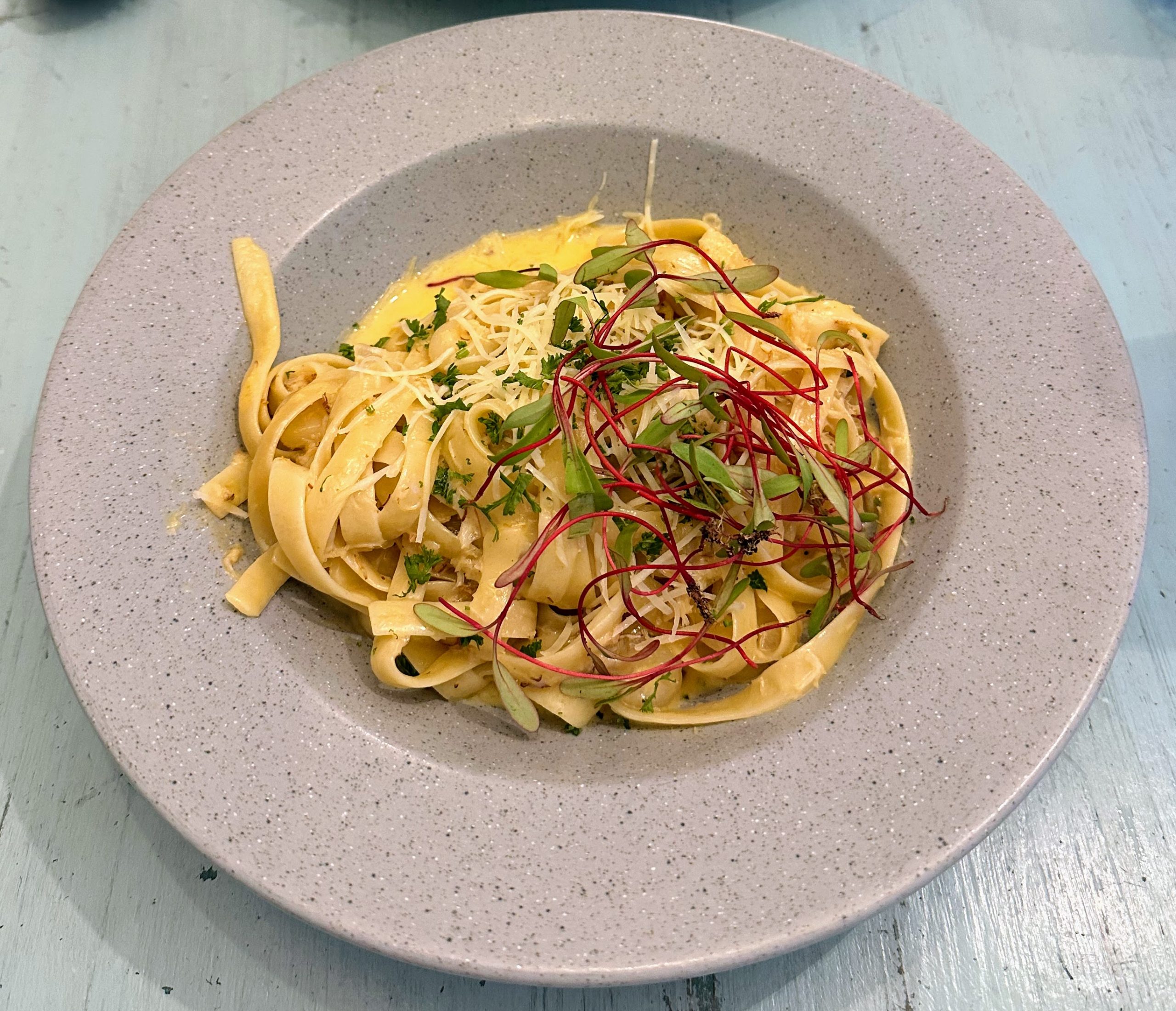
- Barra Marretazo: If you want a tourist-friendly restaurant in a tourist-friendly area, you can’t go wrong with Barra Marretazo. Right in the heart of Miraflores, here you will find great service, tasty food, and generous portions. The pasta and sandwich dishes we got were both great.
- Blu Gelateria: The gelato here is really good! They use a lot of local fruit flavors that you can’t find in the United States. Be adventurous and order something different (like chirimoya).
Things to Do
- Barranco Food Tour: Wondering how we ate at so many restaurants during only two days in Lima? This is your answer! Barranco is a super cool area with a ton of good food, so what better way to explore it than a food tour? Over the course of four hours our guide took us to a ton of places and explained how the traditional Peruvian dishes were prepared. In addition to Alanya Reposteria, Auahuasca, Republica del Pisco, and Blue Gelateria, the tour also included Pisco Sours at a traditional Pisco bar and a visit to a local produce store to try a variety of fruits that are unique to Peru and South America! It was one of our favorite things we did here.
- Breweries: If you get tired of Pisco or just need to wash down all the food you’ve been eating, consider visiting some of the breweries around Lima. We went to both BarBarian and Nuevo Mundo, which conveniently are right down the street from each other. We personally preferred the beer and vibe at Nuevo Mundo, which was more chill and better for having a conversation (BarBarian was a bit loud), but both were better than we expected.

- Historic City Center: Downtown Lima isn’t the nicest, but we felt plenty safe visiting the city center on a free walking tour through Guru Walks. Through this tour we got to see main square, cathedral, and catacombs of the city. These underground ossuaries are filled with an almost disturbing number of bones covered by nothing but a sheet of glass; the only bones left are skulls and femurs, since those don’t really decay. It was interesting learning about the history of the city and this area, but one tour downtown was enough.
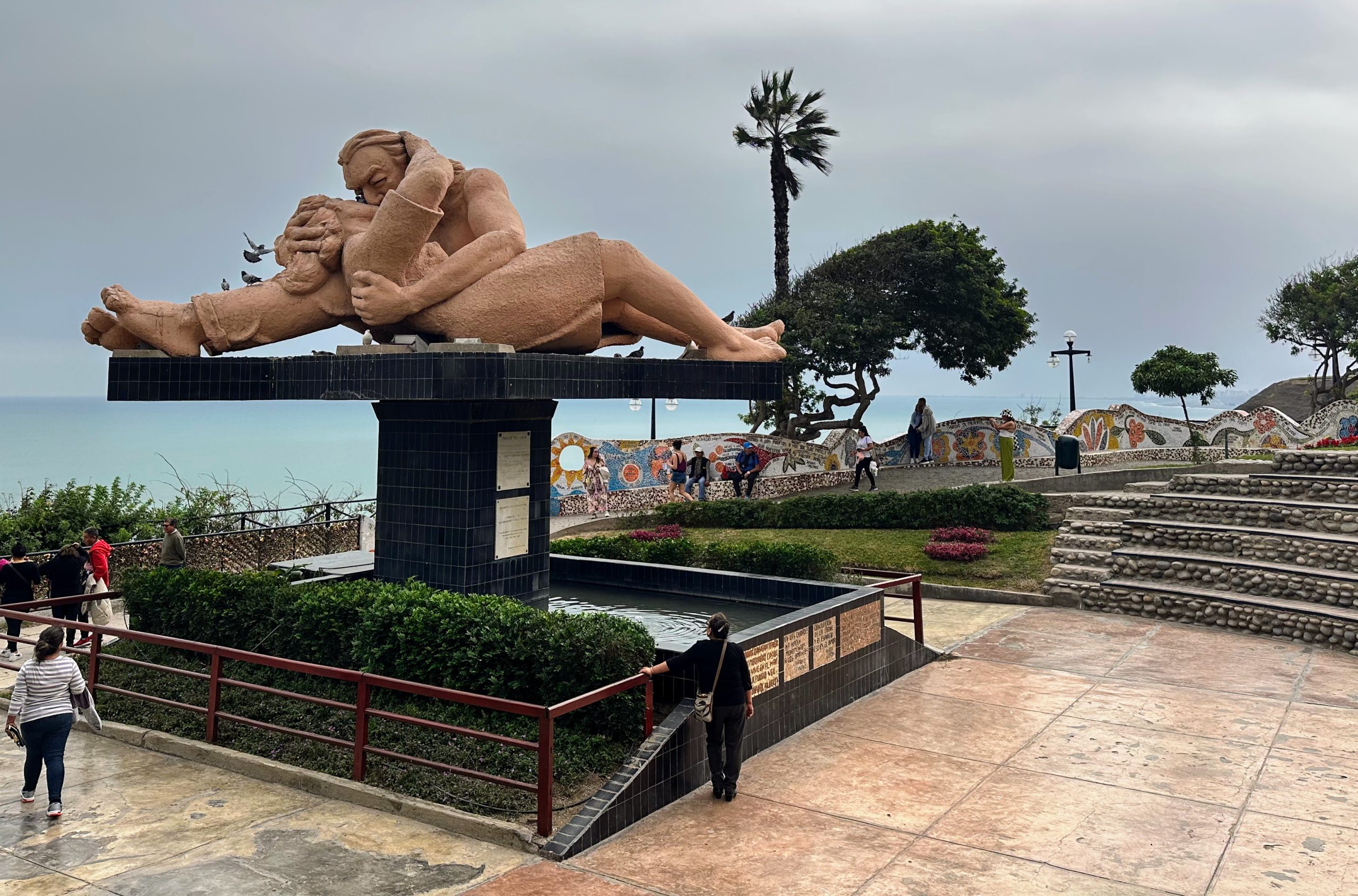
- Malecon de Miraflores: If you have some time to kill and want to be outside, the Malecon is a nice coastal walk. On this strip you can visit the Parque del Amor, which has some interesting statues and mosaic art that is reminiscent of Gaudi in Barcelona. There is also a cat park nearby, if that is more your thing.
Other Tips & Tricks
- Where to Stay: Lima as a whole is not the safest city, but we felt perfectly safe when exploring Miraflores and Barranco. We stayed right in between the two at the Fairfield Miraflores. It was a nice, modest hotel that was a short walk from everything we did in those areas. The best part about this hotel though was that they let us check in at 6am after our redeye flight landed so that we could get some sleep.
- Language Barrier: Knowing some Spanish helps, but you can get by without it. Most restaurants will have an English menu, and most tourist attractions will have translations and workers who can speak some English.
- Getting Around: Uber is cheap and convenient in Lima. We used it to get to / from the airport as well as around town. Public transit in Lima isn’t great, and driving in the city doesn’t seem fun, so Uber is the way to go. Be careful for scammers though – when you exit the airport, you’ll encounter a number of people claiming to be Uber drivers and offering a ride. We’d recommend booking through the app so that the price is negotiated, you can track your location, and there is some added safety.
- Weather: Lima has weather similar to San Francisco. It is very gray and temperate seemingly year round. This makes it easy to pack – you’ll be comfortable in long pants and a sweater throughout the day.
- Currency: The Peruvian currency is the sol. It is helpful to have some cash on hand for tipping and purchases from smaller stores. We recommend exchanging currency at established storefronts in the main tourism areas like Miraflores and Barranco.
Happy traveling!
Kitrina & Jordan
